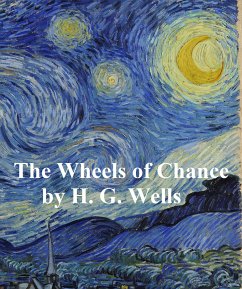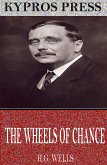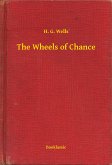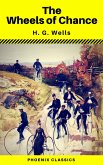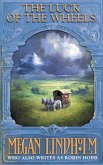Classic novel, first published in 1896. According to Wikipedia: "The Wheels of Chance is an early comic novel by H. G. Wells about a cycle holiday, somewhat in the style of Three Men in a Boat. This novel was written at the height of the cycling craze (1890-1905) when practical, comfortable bicycles first became widely and cheaply available, and before the rise of the automobile (see History of the bicycle). The advent of the bicycle stirred sudden and profound changes in the social life of England. Even the working class could travel substantial distances, quickly and cheaply, and the very idea of travelling for pleasure became a possibility for thousands of people for the first time. This new freedom affected many. It began to weaken the rigid English class structure and it gave an especially powerful boost to the existing movement toward female emancipation. These are the social changes Wells explores in this story. His hero, Mr. Hoopdriver, is a draper's assistant in Putney, a badly-paid, grinding position on the bottom fringes of the middle class (and one which Wells briefly held); and yet he owns a bicycle and is just setting out on a bicycling tour for his annual ten days holiday." "Herbert George Wells (21 September 1866 - 13 August 1946) was an English author, now best known for his work in the science fiction genre. He was also a prolific writer in many other genres, including contemporary novels, history, politics and social commentary, even writing text books. Together with Jules Verne, Wells has been referred to as "The Father of Science Fiction".
Dieser Download kann aus rechtlichen Gründen nur mit Rechnungsadresse in A, B, BG, CY, CZ, D, DK, EW, E, FIN, F, GR, H, IRL, I, LT, L, LR, M, NL, PL, P, R, S, SLO, SK ausgeliefert werden.

